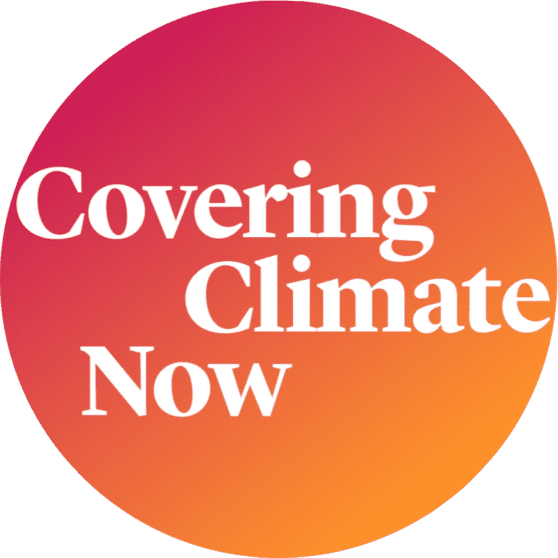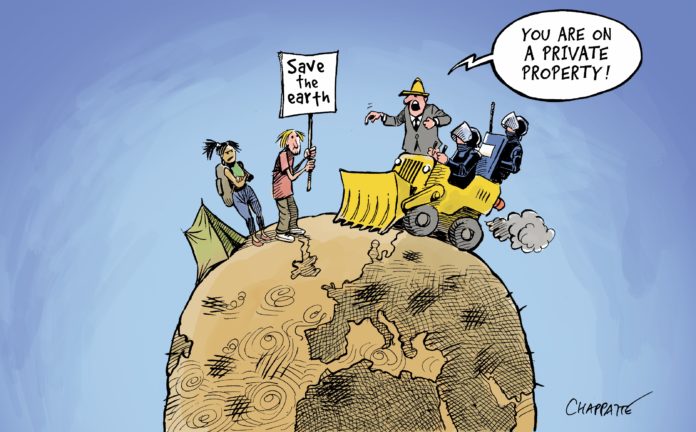 With generations of cloud-watching in our backgrounds and the most qualified tornado-trained meteorologists in the world, Oklahomans sense that Tornado Alley seems to be shifting eastward from the southern plains into the Southeast U.S. And we’re right.
With generations of cloud-watching in our backgrounds and the most qualified tornado-trained meteorologists in the world, Oklahomans sense that Tornado Alley seems to be shifting eastward from the southern plains into the Southeast U.S. And we’re right.
It was no April 1 joke when Hannah Gard and Noel Rehm of Lawton’s KSWO-TV reported, “Recent evidence has shown that the trend of tornado frequency in ‘Dixie Alley’ is on the rise. Not only is the number of tornadoes increasing, but the parameters for strong and violent tornadoes in the Southeast show that the occurrence of strong tornadoes is comparable to that of ‘Tornado Alley,’ there is considerable danger in the current trend in the Southeast.”
Young Oklahoma-trained weatherfolks might want to consider taking their knowledge eastward as well. Those neighbors could use their expertise.
More than 100 years ago, Spanish philosopher José Ortega y Gasset observed, “I am myself and my circumstances.” We are discovering today that those circumstances have consequences.
For nearly 300 years, since the beginning of the Industrial Revolution, modern people have pumped fossil fuel residue into the atmosphere.
The West has created a new kind of person, with luxuries undreamed of previously, a feeling of unlimited expectations, an individual-centered outlook not seen since the Dark Ages when survival and superstition ruled our consciousness. And through exploration, imperialism and colonialism, that attitude was spread globally.
All the while, industrialized carbon dioxide emissions were amassing in our upper atmosphere, creating a greenhouse cover that holds in the heat escaping from Earth into outer space. We started getting warmer.
Our circumstances have begun to change – as exemplified by the increased death and destruction in “Dixie Alley.”
We don’t want to play the role of the clueless neighbors thanking the Lord and reveling in their survival while others just as worthy experienced grisly terrifying deaths.
But recognizing these changing circumstances, we should also acknowledge their origins in the changing world climate that fossil fuel emissions have caused. Climate change changed the weather patterns.
And we were told it would. The 2018 U.S. Global Change Research Program issued a fourth global climate assessment that somehow escaped into the public forum from the last administration’s science-denying dimwits predicted increasing and stronger storms in the Southeast, along with devastating reports about the effects of rising oceans.
And for us in the Southern Plains – who seem to be entering our mid-summer drought about three months early – the global report warned, “People and ecosystems will be hurt by extreme drought, … with future conditions potentially drier than anything the region has ever experienced over the last 1,000 years.”
That is only the beginning. Last month the American Geophysical Union issued a study, picked up by Science Daily, said, “Without efforts to mitigate climate change, summers spanning nearly six months may become the new normal by 2100 in the Northern Hemisphere, … The change would likely have far-reaching impacts on agriculture, human health and the environment.”
Changing our environment, our circumstances, will change our very being. Our possibilities will be limited by different world we are creating.
In the Global Change Research Program report’s overview, the observation that, “Climate change is already making some extreme weather more common and more intense,” certainly resonates with all who suffered through this past February.
Concentrating on our freeze-besieged neighbors to the south, MSNBC observed at the time, “A winter storm caused Texas’s power outage. Climate change likely caused the storm.”
We are seeing the consequences of past actions, but further developments could prove even more dangerous.
As Earth warms, ice caps on Greenland and Antarctica have been melting at record rates. This will contribute to rising ocean levels that will threaten coastal communities worldwide. But the warming ocean itself will alter the weather on the continents. CBS reported in February that the Gulf Stream in the Atlantic Ocean is slowing down.
“Scientists believe that part of this slowing is directly related to our warming climate, as melting ice alters the balance in northern waters,” CBS said. “Its impact may be seen in storms, heat waves and sea-level rise. And it bolsters concerns that if humans are not able to limit warming, the system could eventually reach a tipping point, throwing global climate patterns into disarray.”
That climatic disarray will fuel human disarray as well as millions of people flee flooded coasts and agricultural productivity suffers from droughts. Talk about changing circumstances.
And the heat melting the ice caps is also melting the Arctic permafrost, releasing previously trapped methane, a greenhouse gas, into the atmosphere.
So, any mitigating actions taken by reluctant, short-sighted, greed-fed industrial nations must also take into consideration this new “natural” source of danger – a consequence of repeatedly refusing to heed previous global warming warnings.
Alfred North Whitehead has pointed out, “The isolation of an entity in thought, when we think of it as a bare ‘it’ has no counterpart in any corresponding isolation in nature.”
Relativity includes relatedness. We’re all in this together. One Earth: No Planet B.
This essay is part of The Oklahoma Observer’s participation in Covering Climate Now, a global journalism collaboration from April 12-22 aimed at strengthening coverage of the climate story.








